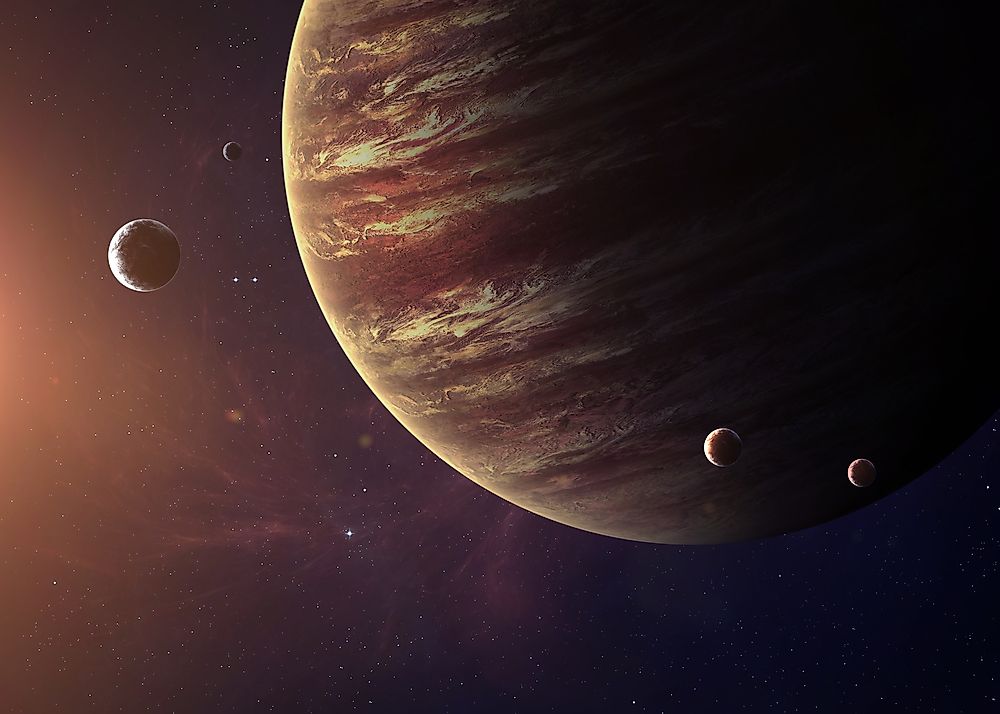How Did Jupiter Get Its Name?

Jupiter is the fifth planet from the Sun and the largest planet in the Solar System. Classified as a giant planet alongside Neptune, Saturn, and Uranus, Jupiter has a mass that is more than twice that of all other planets in the Solar System combined. As a giant planet that is easily visible from Earth with the naked eye, astronomers first identified Jupiter in ancient times. Additionally, the visibility of Jupiter is increased by the fact that it is the fourth-brightest natural object in the sky, after the Sun, the Moon, and Venus. In fact, the planet can sometimes even be seen during the day if the Sun is low. Jupiter has a ring system as well as a magnetosphere. Unlike Earth, which has only one moon, Jupiter has a whopping 79 moons, the largest being Ganymede, which has a larger diameter larger than that of Mercury. The planet has been explored numerous times since 1973 by automated spacecraft. The most famous example is Pioneer 10, the American spacecraft which was the first to get close enough to collect useful information about the planet.
How Did Jupiter Get Its Name?
Ancient Roman astronomers had identified seven natural objects in the sky: five bright planets, as well as the Sun and the Moon. These seven objects were easily visible from Earth with the naked eye because of their size and brightness. The Romans decided to name these bodies after some of their most important gods. Accordingly, early Roman astronomers named the largest planet after their most powerful god, Jupiter. In Roman mythology, Jupiter (or Zeus in Greek mythology) is the god of the sky and the king of the gods.
Prior to settling on the name "Jupiter," the Romans actually called the planet "the star of Jupiter." Compared to other planets, the naming of Jupiter is slightly different since the Greeks did not name the planet "Zeus," which is Jupiter’s name in Greek mythology. Instead, the Greeks called it "Phaethon," which means something (or someone) that shines or blazing. In astronomy, the planet's symbol makes a reference to the weapon used by Jupiter in mythology, which is a lightning bolt.
Jupiter in Other Languages?
Jupiter is known by various other names in different languages and cultures. For example, early astronomers in China, Japan, Korea, and Vietnam called Jupiter the "wood star." Hindus called the planet "Brihaspati," after the religious teacher of the gods, or sometimes "Guru." In English, the Hindu name translates to the "Heavy One." In Germanic legends, the planet was known as "Thor." Additionally, Central Asian-Turkic mythology referred to the planet as Erendiz or Erentüz. These two names stem from the words "eren" and "yultuz," which translate to "uncertain meaning" and "star," respectively.











